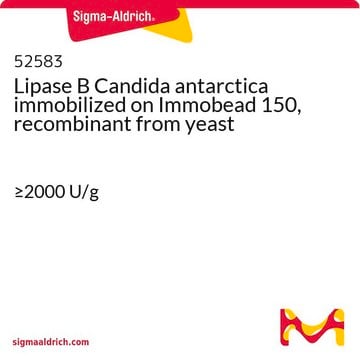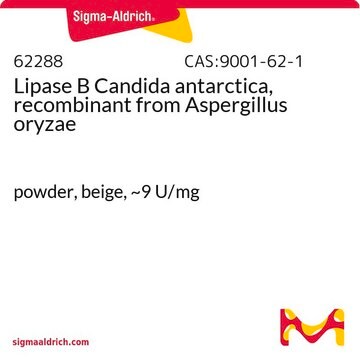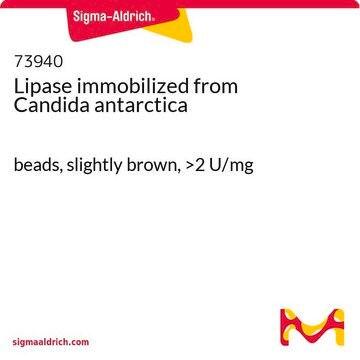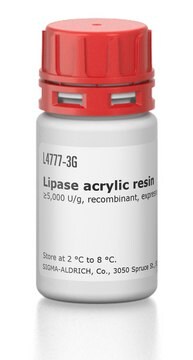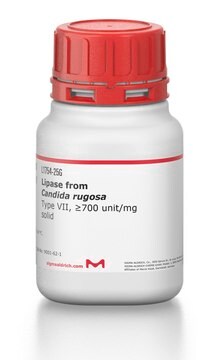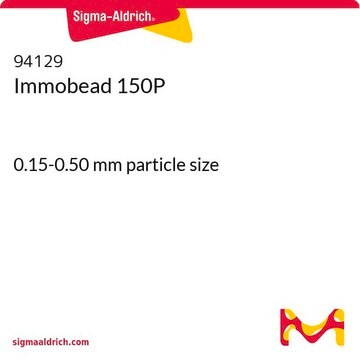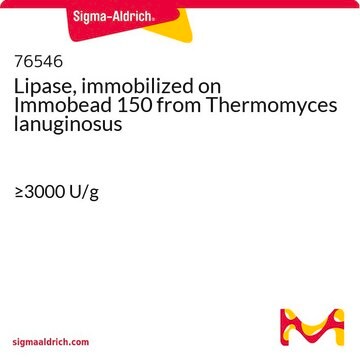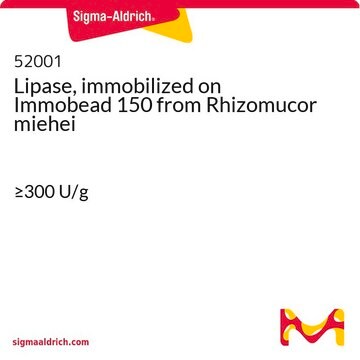54326
Lipase B Candida antarctica immobilized on Immobead 150, recombinant from Aspergillus oryzae
≥1800 U/g
Synonym(s):
Candida lipase, Immobilized lipase, Recombinant lipase
About This Item
Recommended Products
biological source
fungus (Candida antarctica)
Quality Level
recombinant
expressed in Aspergillus oryzae
form
beads
specific activity
≥1800 U/g
technique(s)
analytical sample preparation: suitable
color
white to off-white
application(s)
life science and biopharma
storage temp.
2-8°C
Gene Information
fungus ... LIPB(1170790)
Related Categories
General description
Lipase B from Candida antarctica (CAL-B) is a serine hydrolase, α/β-hydrolase, and is a member of the lipase family. CAL-B is composed of an α/β-hydrolase fold and the active site contains a Ser-His-Asp catalytic triad.[1]
application
Biochem/physiol Actions
Unit Definition
Storage Class
11 - Combustible Solids
wgk_germany
WGK 3
flash_point_f
Not applicable
flash_point_c
Not applicable
ppe
Eyeshields, Gloves, type N95 (US)
Choose from one of the most recent versions:
Already Own This Product?
Find documentation for the products that you have recently purchased in the Document Library.
Customers Also Viewed
Our team of scientists has experience in all areas of research including Life Science, Material Science, Chemical Synthesis, Chromatography, Analytical and many others.
Contact Technical Service